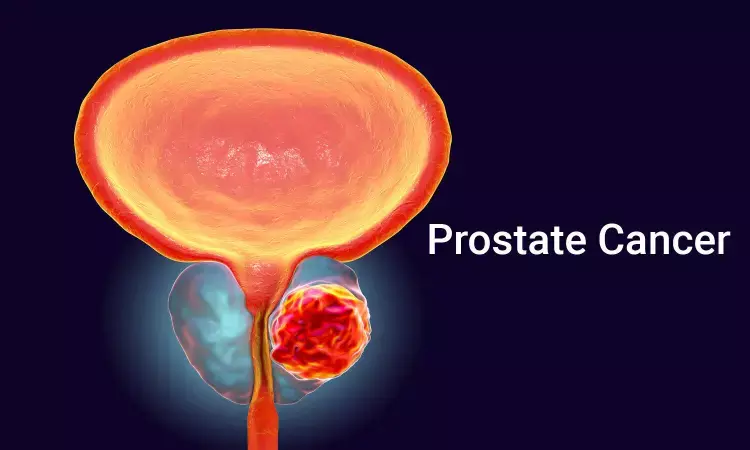- Home
- Medical news & Guidelines
- Anesthesiology
- Cardiology and CTVS
- Critical Care
- Dentistry
- Dermatology
- Diabetes and Endocrinology
- ENT
- Gastroenterology
- Medicine
- Nephrology
- Neurology
- Obstretics-Gynaecology
- Oncology
- Ophthalmology
- Orthopaedics
- Pediatrics-Neonatology
- Psychiatry
- Pulmonology
- Radiology
- Surgery
- Urology
- Laboratory Medicine
- Diet
- Nursing
- Paramedical
- Physiotherapy
- Health news
- Fact Check
- Bone Health Fact Check
- Brain Health Fact Check
- Cancer Related Fact Check
- Child Care Fact Check
- Dental and oral health fact check
- Diabetes and metabolic health fact check
- Diet and Nutrition Fact Check
- Eye and ENT Care Fact Check
- Fitness fact check
- Gut health fact check
- Heart health fact check
- Kidney health fact check
- Medical education fact check
- Men's health fact check
- Respiratory fact check
- Skin and hair care fact check
- Vaccine and Immunization fact check
- Women's health fact check
- AYUSH
- State News
- Andaman and Nicobar Islands
- Andhra Pradesh
- Arunachal Pradesh
- Assam
- Bihar
- Chandigarh
- Chattisgarh
- Dadra and Nagar Haveli
- Daman and Diu
- Delhi
- Goa
- Gujarat
- Haryana
- Himachal Pradesh
- Jammu & Kashmir
- Jharkhand
- Karnataka
- Kerala
- Ladakh
- Lakshadweep
- Madhya Pradesh
- Maharashtra
- Manipur
- Meghalaya
- Mizoram
- Nagaland
- Odisha
- Puducherry
- Punjab
- Rajasthan
- Sikkim
- Tamil Nadu
- Telangana
- Tripura
- Uttar Pradesh
- Uttrakhand
- West Bengal
- Medical Education
- Industry
Being overweight in middle age increases prostate cancer risk

Advanced prostate cancer etiology is poorly understood. Few have examined the role of early adulthood BMI and adult BMI changes on risk of advanced forms of prostate cancer.
Researchers at Columbia University have conducted a study and found that being overweight in middle age and later adulthood may increase risk of advanced prostate cancer later.The study has been published in Annals of Oncology.
Prostate cancer is the second most common cause of cancer in men in the United States. Fewer than one in three men with advanced prostate cancer live five years beyond diagnosis.
Before this study, only a few studies examined contributing factors to advanced prostate cancer. There was an especially noticeable lack of research on the linkage between factors like weight in early adulthood, changes in weight during adulthood, and waist circumference, specifically with advanced prostate cancer risk.
Using data from 15 large studies combined together, Genkinger examined associations between body fat, height, and prostate cancer risk in 830,772 men, 51,734 of whom had been diagnosed with prostate cancer. Her study took a life-course-based approach, examining survey data collected across respondents' lifespans to determine whether and at what age during adulthood excess body fat increased risk for advanced prostate cancer. The researchers found that a BMI elevated above a healthy weight during middle to late adulthood--median age range from 50 to 64--was linked to the greatest risk for developing advanced prostate cancer. A "healthy" weight is defined as a BMI between 21 and 25 kg/m2.
They also found that greater waist circumference was linked with increased risk of advanced prostate cancer and death. Although other studies have linked higher BMI with increased prostate cancer, this is the first study to find a positive association with waist circumference.
"These study results show that risk for advanced prostate cancer can be decreased by maintaining a 'healthy' weight, which is in line with guidelines by the American Cancer Society and the World Cancer Research Fund. Adopting healthy eating and exercising are factors that can help maintain a healthy weight," says Genkinger, associate professor of epidemiology at Columbia Mailman School. "This study shows that adopting and maintaining a healthy weight in middle to late adulthood can especially reduce the risk of advanced prostate cancer."
For more details click on the link: http://dx.doi.org/10.1016/j.annonc.2019.09.007
Dr Kamal Kant Kohli-MBBS, DTCD- a chest specialist with more than 30 years of practice and a flair for writing clinical articles, Dr Kamal Kant Kohli joined Medical Dialogues as a Chief Editor of Medical News. Besides writing articles, as an editor, he proofreads and verifies all the medical content published on Medical Dialogues including those coming from journals, studies,medical conferences,guidelines etc. Email: drkohli@medicaldialogues.in. Contact no. 011-43720751


